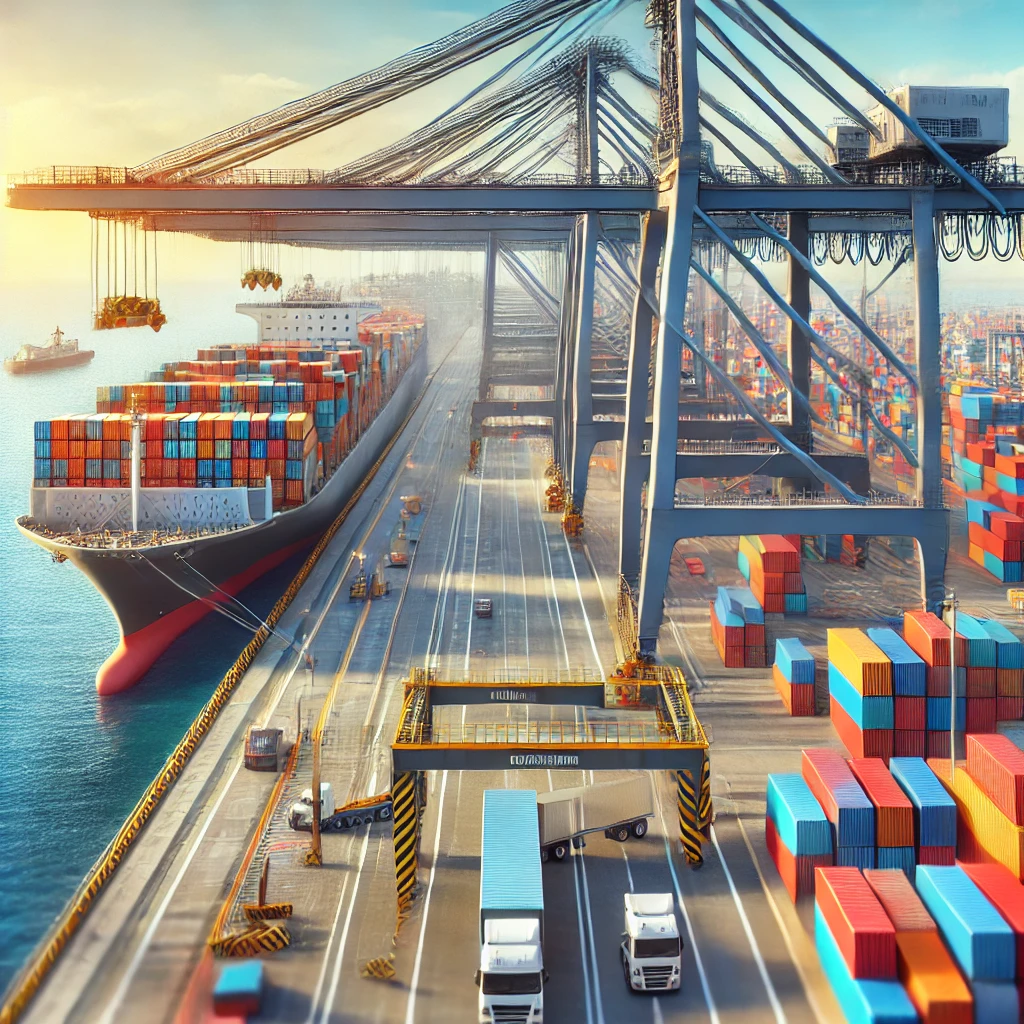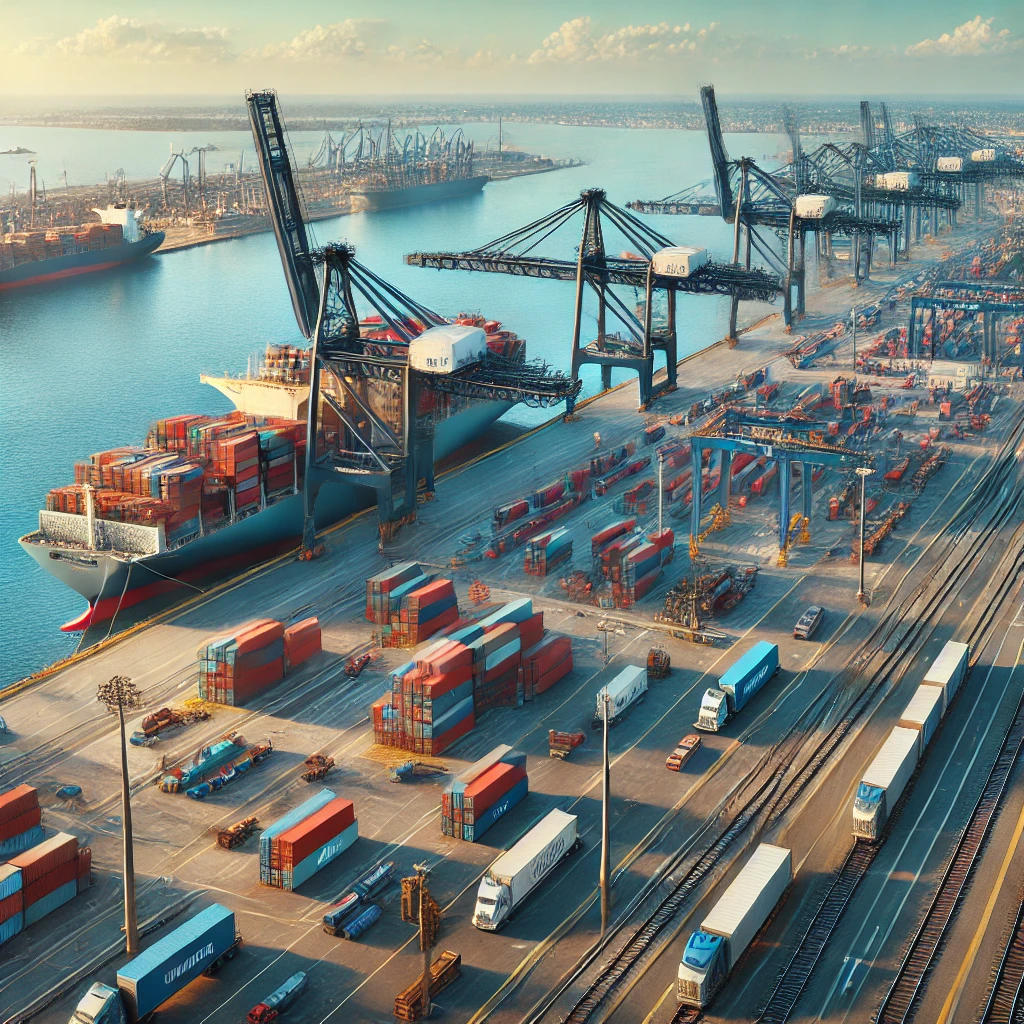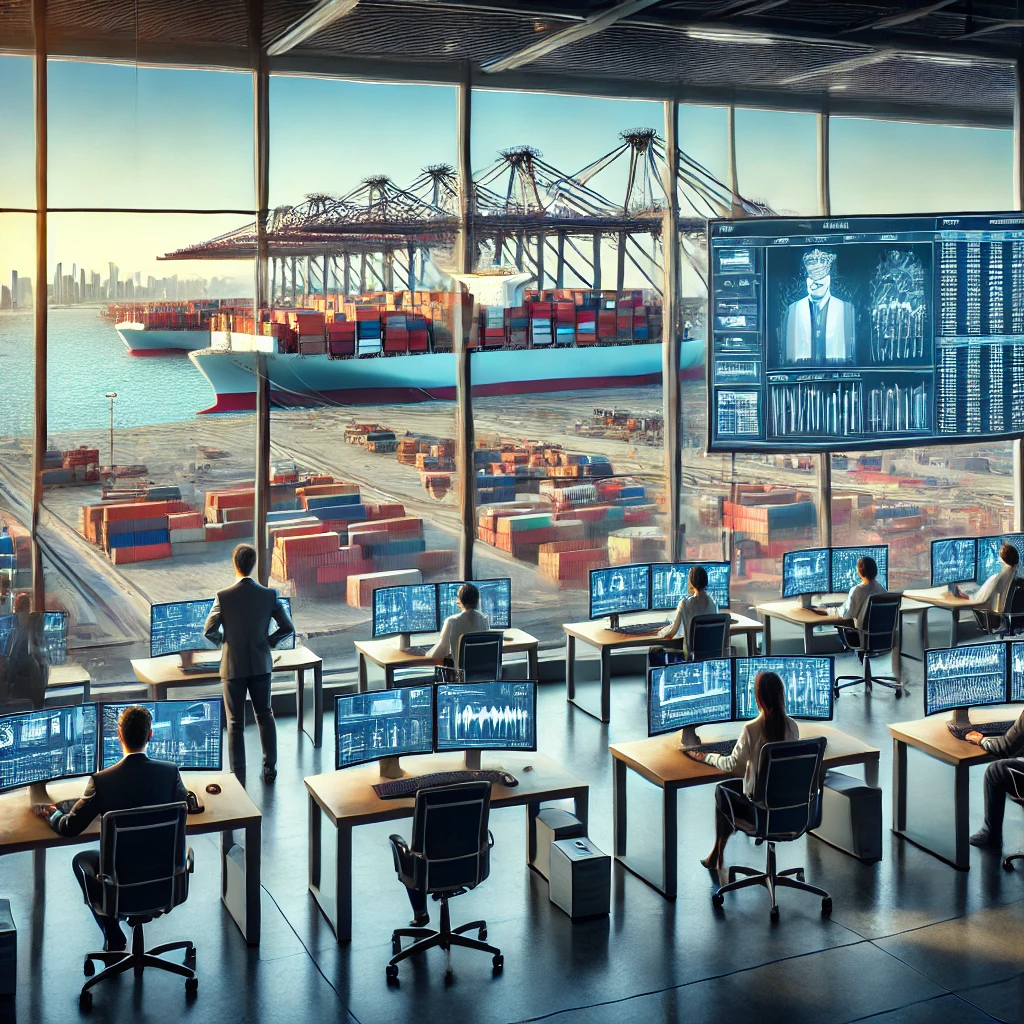Exploring Port Elizabeth Newark in Detail
This article will explore the history, key features, logistical advantages, and future developments of Port Elizabeth, helping businesses and logistics professionals understand its role in the global supply chain.

📍 History and Location
Port Elizabeth was established in the 1960s as part of the Port Authority of New York and New Jersey’s initiative to expand maritime trade on the East Coast. Situated along Newark Bay, the port offers direct access to the Atlantic Ocean, making it a preferred choice for shipping routes to Europe, South America, and Asia.
The port’s strategic location near major highways such as Interstate 95, Route 1, and the New Jersey Turnpike provides easy inland access, allowing goods to move quickly between the port, warehouses, and distribution centers. Additionally, its proximity to Newark Liberty International Airport further strengthens its role as a multimodal logistics hub.
🚢 Key Features of Port Elizabeth
Port Elizabeth is designed to handle high cargo volumes efficiently. Some of its standout features include:
- Deep-Water Berths: The port can accommodate some of the world’s largest container ships, thanks to its deep-draft terminals.
- Modern Gantry Cranes: High-capacity cranes facilitate the rapid loading and unloading of cargo, improving turnaround times.
- On-Dock Rail Access: The ExpressRail system links the port to major rail lines, allowing for seamless intermodal transportation.
- Automated Cargo Handling: Advanced logistics software and automation systems streamline the movement of goods.
- Customs and Free Trade Zone: Businesses benefit from streamlined customs processes and tax advantages in the port’s FTZ.
These features enable Port Elizabeth to remain a competitive player in global shipping and logistics.

🌍 Importance in Global Trade
Port Elizabeth plays a crucial role in the U.S. supply chain, supporting industries ranging from retail to automotive manufacturing. Some of its major contributions include:
- Handling Over 3 Million TEUs Annually: One of the largest container volumes among East Coast ports.
- Economic Impact: Supports thousands of jobs in transportation, warehousing, and logistics sectors.
- Strategic Trade Routes: Facilitates trade with Europe, Asia, and Latin America.
- Key Hub for Major Shipping Lines: Global carriers such as Maersk, MSC, and CMA CGM operate through Port Elizabeth.
With its efficient infrastructure and global connectivity, the port is a preferred entry point for many U.S. businesses.
🏭 Practical Uses for Businesses
Port Elizabeth is essential for various industries looking for efficient import/export solutions. Businesses that benefit the most from the port include:
- Retailers & E-commerce Companies: Fast-moving consumer goods arrive quickly from overseas suppliers.
- Automotive Industry: Vehicles and parts are imported efficiently through Ro-Ro (Roll-on/Roll-off) operations.
- Pharmaceutical & Healthcare Companies: Temperature-controlled shipping ensures safe delivery of sensitive medical products.
- Manufacturers & Distributors: Easy access to trucking and rail services speeds up supply chain operations.
By leveraging the port’s services, businesses can optimize their supply chain, reduce costs, and improve delivery times.

🚛 Logistics & Transportation Advantages
One of Port Elizabeth’s biggest strengths is its well-developed transportation network, which allows for quick cargo movement:
- 🚂 Rail Connectivity: ExpressRail links the port to national rail networks, reducing truck congestion and transit costs.
- 🚚 Trucking Routes: Located near major interstates, making it easy for trucks to distribute goods to the Northeast and Midwest.
- ✈️ Air Cargo Access: Proximity to Newark Liberty International Airport supports expedited airfreight options.
- 📦 Warehousing & Distribution Centers: Large logistics parks in the region help streamline inventory management.
These logistics advantages make Port Elizabeth a crucial hub for efficient cargo distribution across North America.
⚠️ Challenges Facing Port Elizabeth
Despite its many benefits, the port faces challenges that impact operations:
- Port Congestion: High cargo volumes lead to occasional delays, requiring ongoing capacity expansions.
- Environmental Regulations: Efforts to reduce emissions are driving investments in green port technologies.
- Infrastructure Upgrades: Continuous improvements are needed to handle larger container ships and maintain efficiency.
- Labor & Workforce Demands: Managing an expanding workforce while maintaining productivity is a key concern.
Addressing these challenges will be critical in ensuring Port Elizabeth remains a leading shipping terminal in the future.

🚀 Future Developments & Expansion Plans
To maintain its competitive edge, Port Elizabeth is investing in infrastructure and technology advancements, including:
- Harbor Deepening Project: Enhancing the port’s ability to accommodate ultra-large container ships.
- Automation & AI in Logistics: Implementing smart tracking systems and AI-driven cargo management.
- Sustainable Operations: Expanding electric truck fleets, shore power facilities, and emission reduction initiatives.
- Rail Capacity Expansion: Increasing intermodal efficiency to reduce truck dependency.
These initiatives will further solidify Port Elizabeth’s role as a modern and efficient logistics hub.
✅ Conclusion
Port Elizabeth in Newark is a vital gateway for international trade, offering world-class infrastructure, strategic connectivity, and extensive logistics capabilities. As one of the busiest ports in the U.S., it continues to support businesses by providing efficient shipping solutions, reducing transit times, and facilitating economic growth.
With ongoing developments in automation, sustainability, and cargo handling efficiency, Port Elizabeth is well-positioned to remain a key player in global trade. For businesses looking to optimize their supply chain and leverage top-tier logistics infrastructure, Port Elizabeth stands out as a premier choice.
